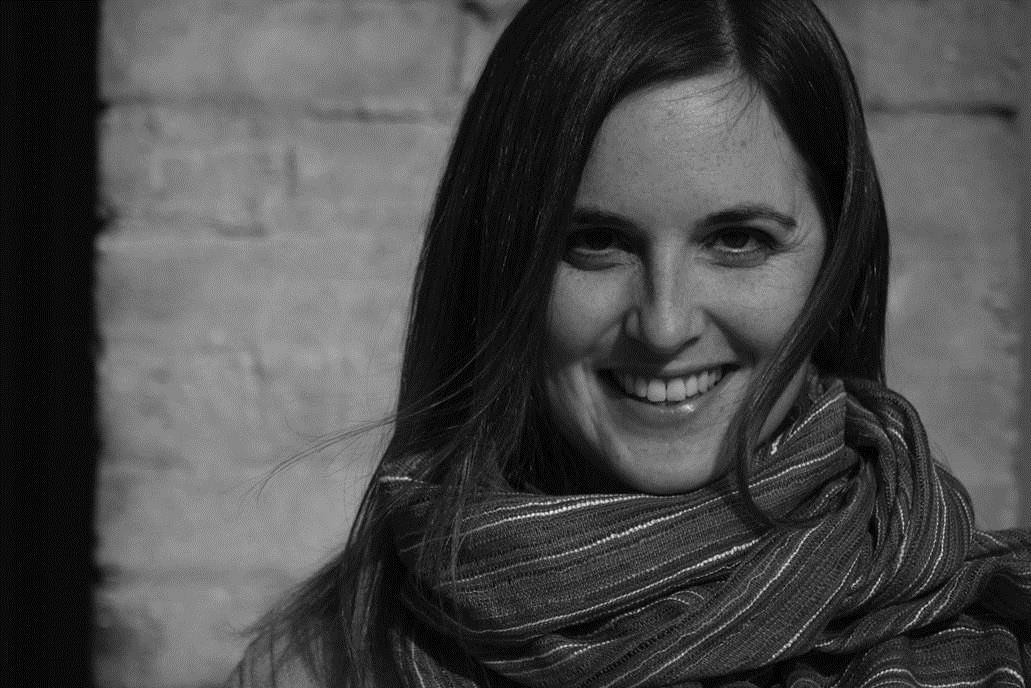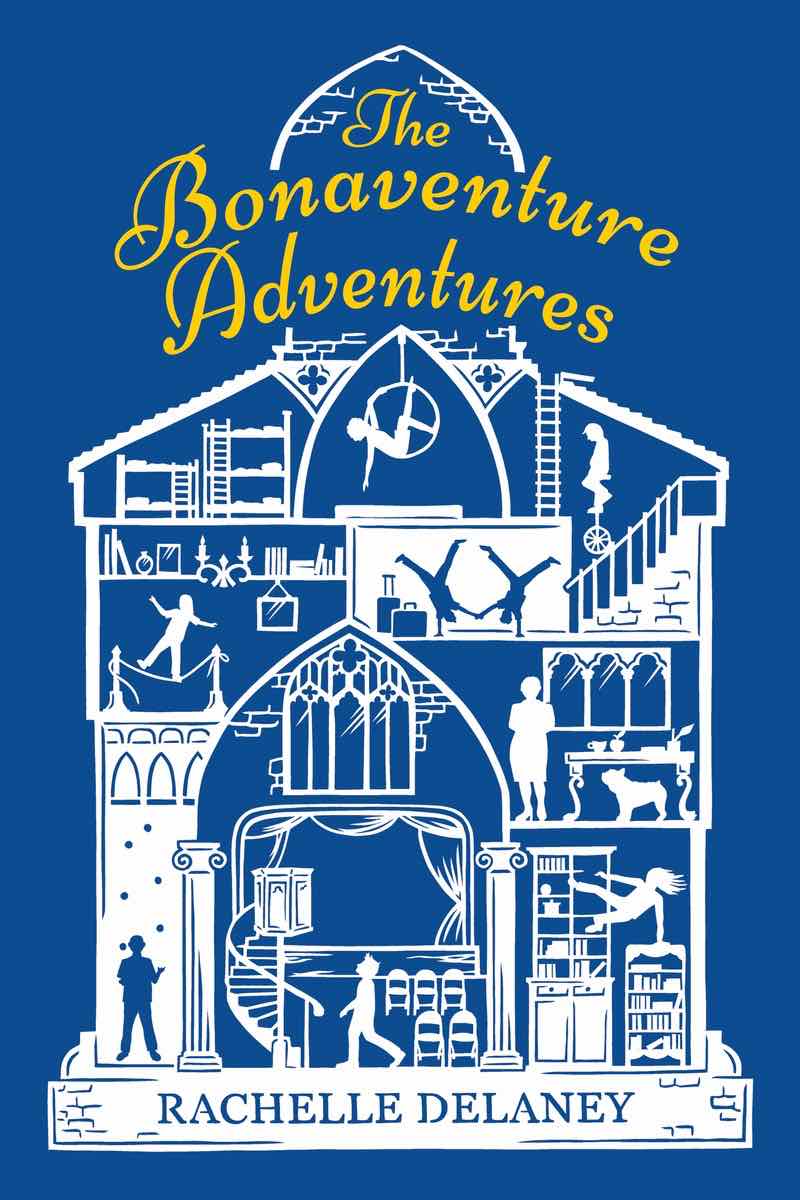
Rachelle Delaney is the author of several middle grade novels, including The Bonaventure Adventures. The following is a complete transcript of her interview with Cracking the Cover.
Why do you write? Why specifically for young readers?
I’ve been drawn to writing stories since I was about eight or nine years old. Perhaps that stemmed from a desire to put myself into the stories I was reading so voraciously—I’m not entirely sure. But I do know that when I went to university to study sciences, I discovered that all I really wanted to do was write—I was avoiding all my science classes and signing up for every English elective I could find.
So I changed course and studied creative writing instead, and followed up my undergrad degree with an MFA in creative writing. It was during my MFA that I decided to try writing for children—until then I’d focused on nonfiction. And I fell in love with it. There’s something so satisfying about writing for young readers—especially middle-grade readers. You can incorporate magic and humour and adventure into your stories, and your readers are so willing to go along for the ride. And it’s delightful to share stories face-to-face with that audience.
Where do your ideas come from?
So often, my inspiration comes from real-life stories or situations that I’ve either read about in the news or encountered in person. The Metro Dogs of Moscow, for instance, was inspired by a news story about some stray dogs in Moscow who learned to take the subway to travel around the city.
Where did the idea for The Bonaventure Adventures come from?
The Bonaventure Adventures started to take shape in my mind years ago, when I was teaching creative writing to some kids enrolled in circus arts classes. I thought that would make a fun setting for a story, so I began to research it and discovered that there’s a renowned circus school in Montreal, where kids and teens from all over train to be future circus stars. I went to Montreal and became smitten with the city and the modern circus scene. The school in The Bonaventure Adventures is nothing like any circus school I’ve been to, of course—I liked the idea of setting the story in an old, crumbling school filled with strange and quirky characters. That’s my kind of place.
 Seb grew up in a circus, but has no real discernible gift. How did his character develop?
Seb grew up in a circus, but has no real discernible gift. How did his character develop?
Seb’s character developed over many years and many, many drafts. I always knew I wanted kids from all over the world uniting at Bonaventure, and I wanted one to have a background in circus arts, so that he could act like a guide for the new students who knew little about the modern circus (and also for the reader). I knew he’d come from an old circus family but be reluctant to perform himself.
Originally, Seb (whose name changed several times over the years) was more of a background character—he offered insight now and then but didn’t play a huge role. But as I wrote and rewrote, his character came to life, and I think eventually my agent pointed out that he really ought to have a starring role. Now I couldn’t imagine it any other way—Bonaventure is definitely Seb’s story.
What is it about circuses that makes you want to write about them?
Before I started researching for this book, my vision of the circus involved big top tents and out-dated acts like dancing bears and fire-breathers. But on that first trip to Montreal, about five years ago now, I took in my first contemporary circus show—I think the company was Les sept doigts de la main—and was blown away by the genre. Contemporary circus shows don’t involve animals, and the acts are more experimental—they tell stories and convey emotion in ways that traditional circuses don’t. They’re surprising and moving and fun. Now whenever I travel, I try to find a circus show to take in. Over the past few years, I’ve seen them in Spain, Cambodia, Toronto, and of course Montreal.
If you were in a circus, what would your talent be?
Fun question! Part of my research involved taking beginner circus arts classes myself, which was terrifying since I’m awfully uncoordinated and not the least bit acrobatic. But I figured I had to do it so I could understand how Seb felt as a hopeless beginner. I dabbled in juggling, acrobatics, and aerials, and eventually I came to love the aerial hoop, once I developed the strength to master a few tricks. So I’d choose that as my circus talent.
Students attend the Bonaventure school for four years. Is the how many books you have planned?
Right now, The Bonaventure Adventures is a stand-alone novel. But I’d love to write a sequel; I don’t feel ready to let these characters go yet. So we’ll see.
Looking back, how has your writing evolved?
Oh, it’s evolved so much. As a teenager, I used to write long, rambling stories with very little plot. I’m sure they were brutally bad, and fortunately I have no idea where they are now. Through my university writing courses, I slowly learned to write coherent stories populated with interesting, complex characters. But I still have so much to learn! I can definitely see my progression as a writer when I look back at my first published novel, The Ship of Lost Souls, which I started about 12 years ago, in my mid-twenties. But I think it’s also a human progression; the ideas that intrigue me now aren’t the same ones I played around with when I was 25.
You teach creative writing. How does teaching help your own writing?
Well, it supports my writing financially—that’s pretty important. But it’s also incredibly valuable to learn how to give helpful feedback—to put yourself in another writer’s place and figure out what’s not working in their story and what it requires. That skill helps you learn to spot issues in your own writing and decide how best to solve them.
What are you working on now?
I’m working on a new novel, due out in 2018. It’s about an 11-year-old budding journalist who discovers that she’s a clairvoyant. And it’s set in Toronto, another one of my favourite Canadian cities.
Is there a book from your own childhood that still resonates with you today?
I think Pippi Longstocking will always resonate with me, because Pippi is the embodiment of independence and capability. Lindgren’s books truly celebrated Pippi’s bravery, wit, and sense of adventure, and I’d say I grew up to celebrate those things too.
